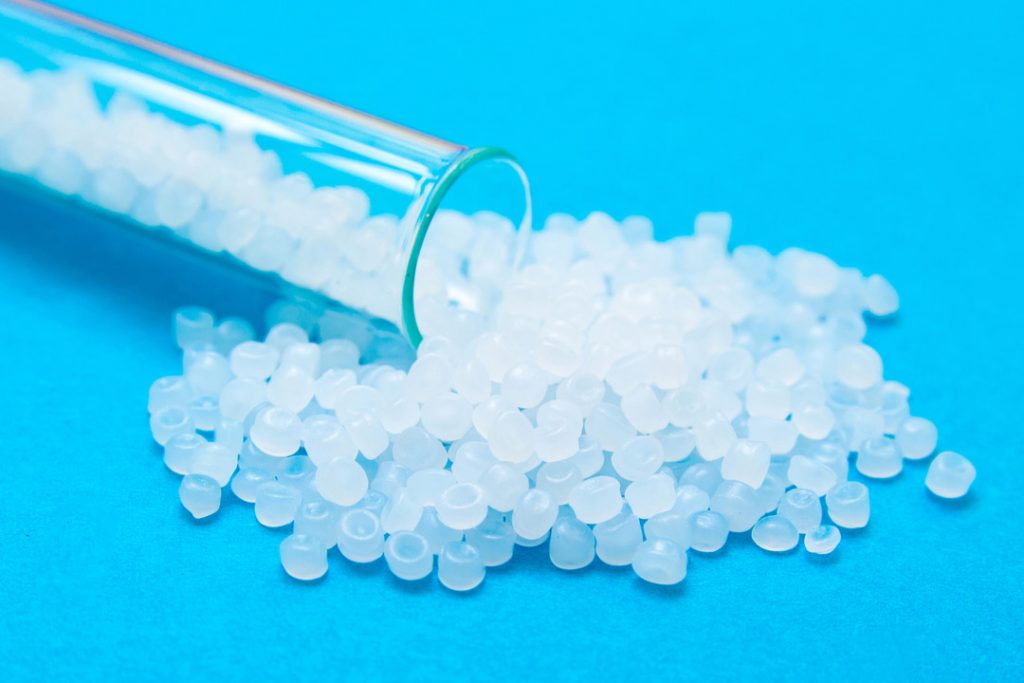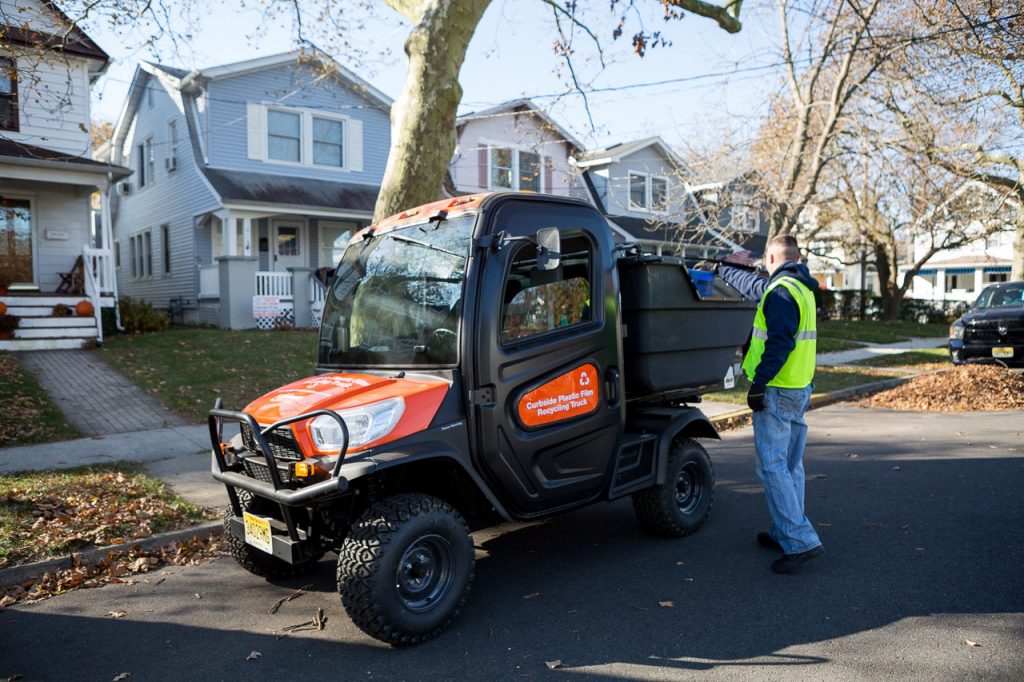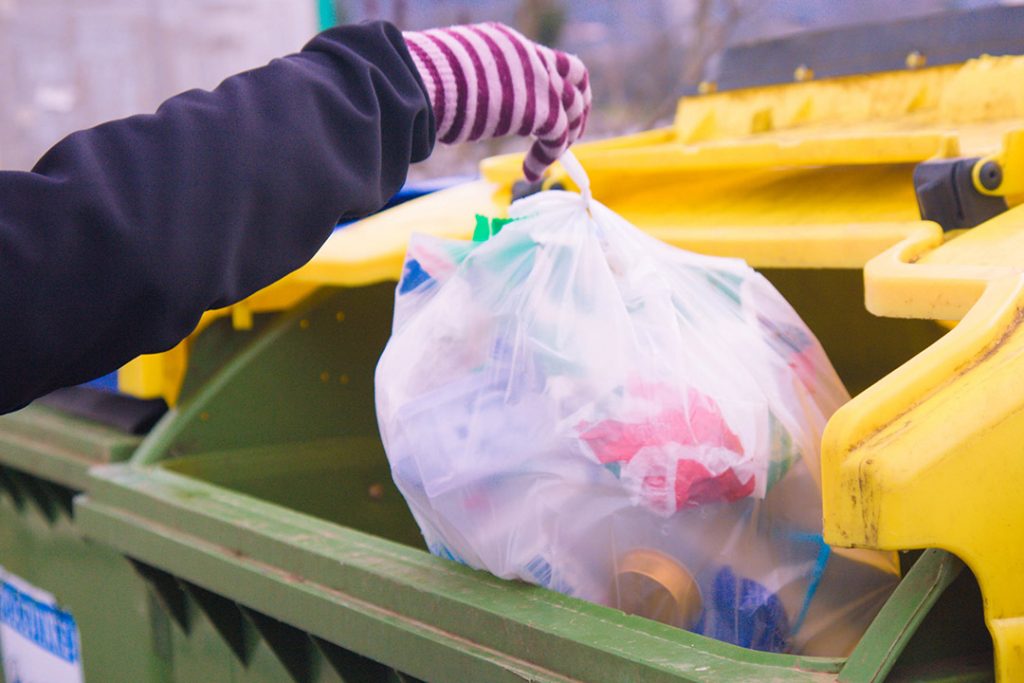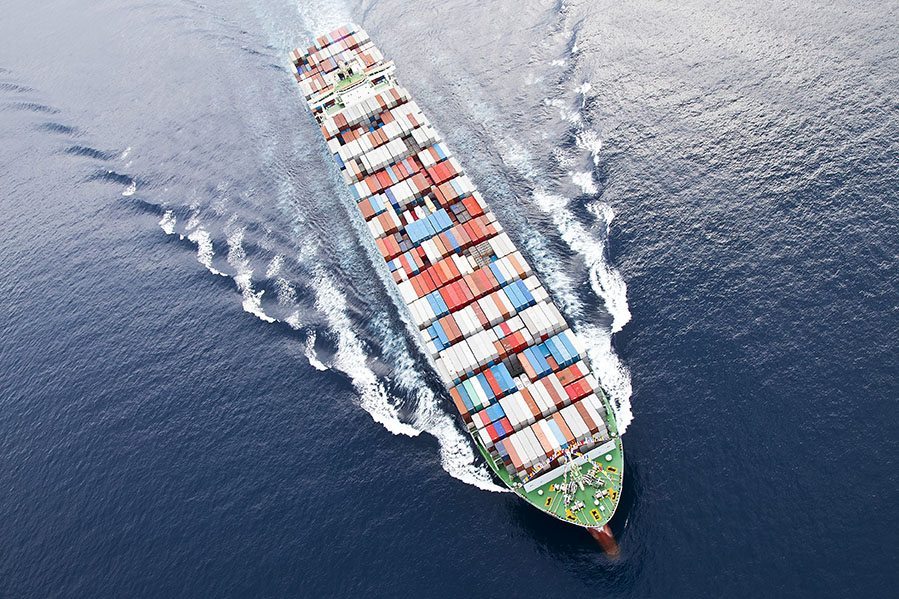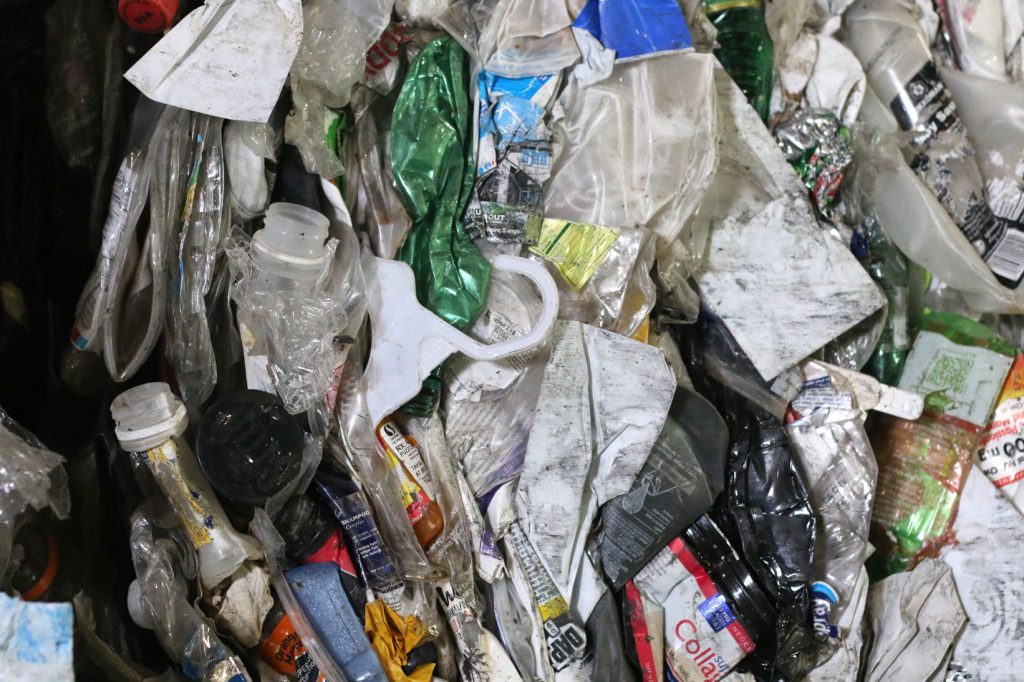
A close-up view shows the wide variety of materials in the mixed-plastic bales. | Jared Paben/Resource Recycling, Inc.
A demonstration project found that by routing mixed bales and MRF residue to a central sorting location, more than 17,000 tons of additional plastics could be captured in the Pacific Northwest each year.


 Montgomery, Ala. has reached an agreement to assume ownership of Infinitus Energy’s shuttered mixed-waste processing operation.
Montgomery, Ala. has reached an agreement to assume ownership of Infinitus Energy’s shuttered mixed-waste processing operation.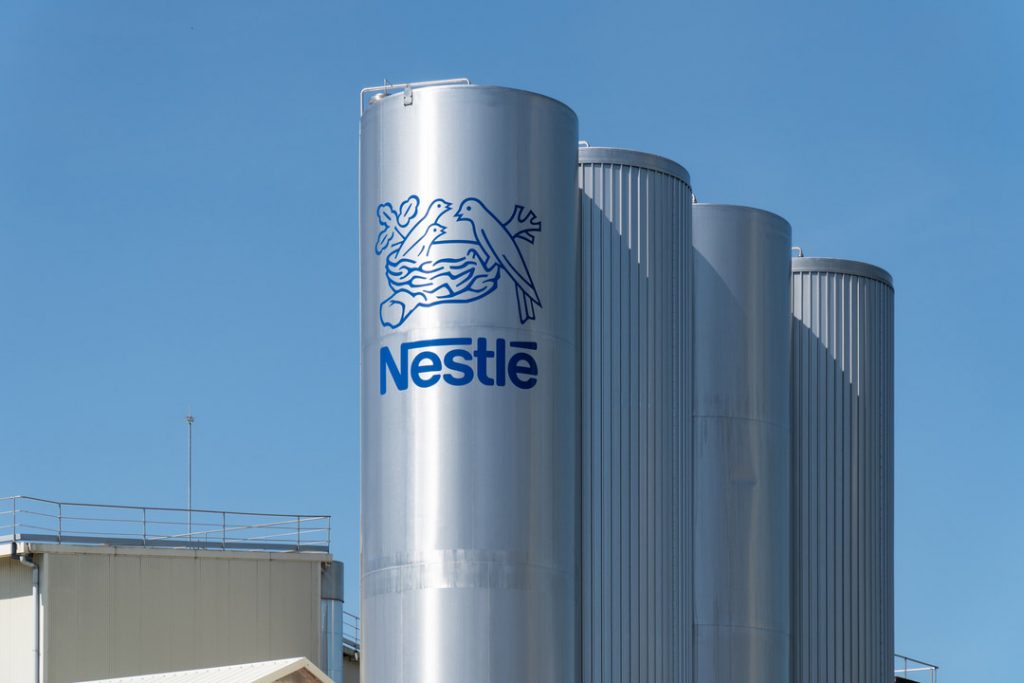

 Prices for natural HDPE bales have remained at record highs this month, but color HDPE bale prices have fallen.
Prices for natural HDPE bales have remained at record highs this month, but color HDPE bale prices have fallen. 